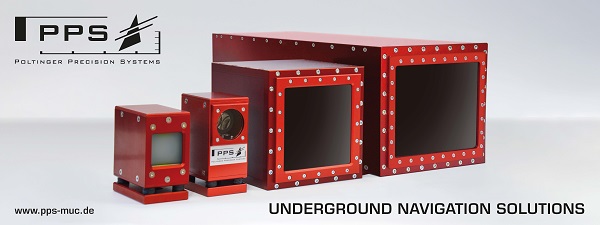The first Tunnel Boring Machine renovation completed at Webuild's new TBM renovation facility in Terni, Italy
With a cutter head spanning over 13 metres in diameter, the TBM that has arrived in Salerno is equipped with 18 motors generating a total of 10 Megawatts of power and will operate 24/7
Originating from Paris and headed to dig tunnels on the same line is the first TBM reconditioned in Webuild’s Terni facility, in keeping with the company’s belief in innovation and the circular economy
Webuild is the world leader in underground excavation, with approximately 60 TBMs worldwide, 40 of which are in Italy, including 30 in the South
Salerno, 30 September 2024 - The port of Salerno has just been graced with the arrival of the first of the four TBMs (Tunnel Boring Machines) designated for the excavation of the tunnels planned for the route of Lot 1A (Battipaglia-Romagnano) on the Salerno-Reggio Calabria high-speed rail line, with works being carried out by the Xenia consortium headed up by Webuild on behalf of RFI (Gruppo FS Italiane).
After its arrival by ship in Salerno, the truly massive TBM will be transported to a secondary location for assembly, which will take two to three months. The machine will then be used to excavate three kilometres of the Saginara tunnel, which runs between the towns of Campagna and Contursi Terme (province of Salerno), working 24 hours a day, seven days a week. Its operation and maintenance will require a total of more than 100 highly specialised workers.
An impressive 130 metres long and weighing some 4,000 tonnes, the TBM that has arrived in Salerno is equipped with 18 motors generating a total of 10 Megawatts of power. With a cutter head spanning 13.46 metres in diameter, this TBM is the largest to ever be used in Italy or Europe by Webuild, the world’s leading underground excavation group, which currently boasts a fleet of some 60 TBMs overall, including those in operation, being assembled, on order and with pending orders for a variety of ongoing projects.
Following the arrival of the colossal ‘mole’ in Salerno today, the next few months will see the arrival of three more TBMs which will allow work to commence in earnest on the railway line construction site, funded by the NRRP.
One of the TBMs due to arrive is coming from the construction sites of the Grand Paris Express in the French capital and is the first to have been directly ‘reconditioned’ at Webuild’s innovative facility in Terni, a new industrial hub that specialises in remanufacturing TBMs and other machinery. Webuild - through its new subsidiary WEM (Webuild Equipment & Machinery), founded in 2024 - is the first general contractor to remanufacture TBMs and MSVs (Multi Service Vehicles) for civil, infrastructural and marine use, with a view to promoting the circular economy in the industry’s supply chains both within Italy and worldwide. The group’s aim is to prolong the service life of highly innovative machinery.
In Italy, there are currently around 40 TBMs earmarked for the group’s ongoing projects, 30 of which are in the South, an area of the country where Webuild is engaged in 19 projects involving the construction of over 300 kilometres of new high-speed, high-capacity railway line. These projects already employ some 6,800 workers, including direct employees and subcontractors, with around 4,300 companies involved in the supply chain since works began.
The works that fall under Lot 1A - awarded to the Xenia Consortium, comprising Webuild (consortium leader), Pizzarotti, Ghella and Tunnel Pro - form an integral part of the project to build the new Salerno-Reggio Calabria high-speed rail line. The route involves the executive design and construction of 35 kilometres of new line between the towns of Battipaglia and Romagnano, allowing trains to travel at speeds of up to 300 kilometres an hour. All in all, the project includes the construction of 20 tunnels (eight of which are set to be excavated using four TBMs) and 19 viaducts, in addition to a planned junction in Romagnano to allow the new line to interconnect with the existing line, which runs from Battipaglia towards Metaponto and Potenza.
Lot 1A of the new Salerno-Reggio Calabria HS line is one of the strategic projects aimed at upgrading the country’s sustainable mobility - including with a view to supporting the energy transition - that will help to bring together the North and South of Italy, supporting the development and growth of its more remote areas and giving the country a fresh competitive edge, thus allowing it to become increasingly interconnected with the rest of Europe.
source is Webuild.
cover tunnel photo by: Matt Brown from London, England / CC BY
Copyright 2019-2024 TunnelContact.com








